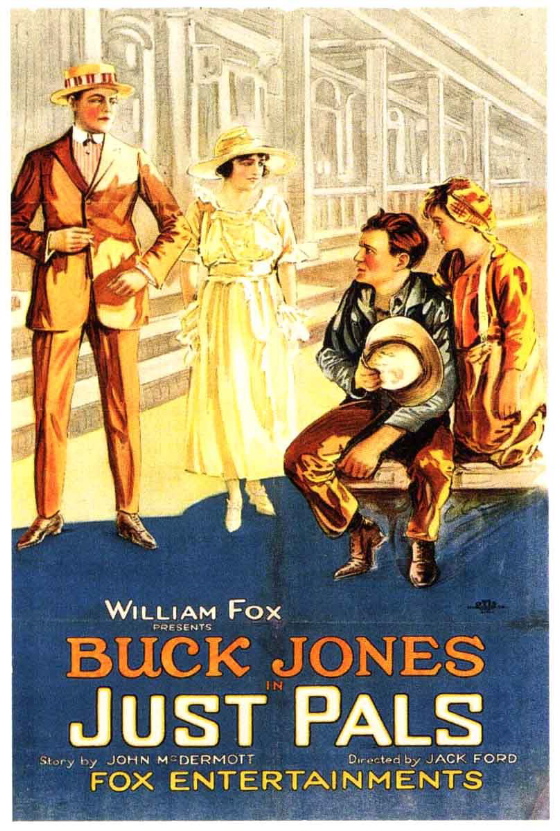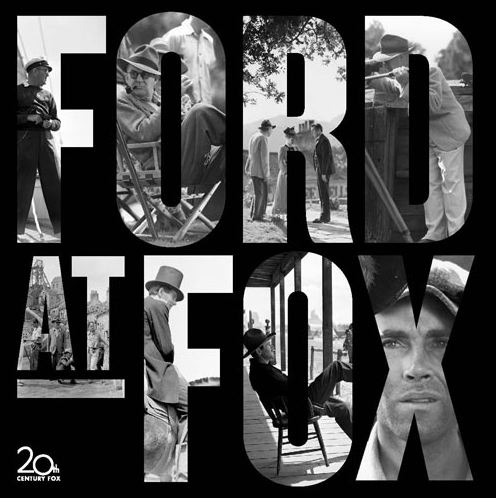
Just Pals, the first film John Ford made for Fox, makes an
illuminating pendant to another silent film also recently released on
DVD, D. W. Griffith's True Heart Susie. They could have been made by
the same director — which is to say that Ford, the younger of the two
and the one newer to the business, obviously studied hard at his
master's feet.
Both films fall into the American Pastoral genre, both feature plots
that are outrageously melodramatic, unashamedly sentimental — and both
are visual masterpieces.
We forget it sometimes, but American culture is in love with virtue — a
love tempered only by the desire not to be taken for a fool. We like
our virtue delivered sidewise. In less cynical times than the present,
this sidewise delivery could be only slightly oblique. So we have
Griffith's gentle teasing of the innocent protagonists of his tale, and
Ford's cursing urchin in his. But simple decency is the theme of each
film — as it is of Huckleberry Finn, from an earlier age, and of Casablanca, from a later one. The differences in attitude mainly
involve how cynical the narrator or protagonist has to pretend to be
before getting down to doing or celebrating the right thing.
The message of most works of art can be boiled down to a platitude, if
one is so inclined. The message of Huckleberry Finn is “blacks are
human, too, and anyone who thinks otherwise risks losing his or her own
humanity.” But art is not about messages. It's about creating psychic
movement within the audience — about internalizing the wisdom
trivialized in a platitude.
In silent movies, this process of internalization happens visually —
not in the plot or in the intertitles. In Just Pals, Ford convinces
us that he loves his protagonists not by making them narrative agents of
good but by the way he situates them in space, in the settings of the
story. The cursing urchin is revealed as plucky and independent and
admirable not by his curses but by the way he rides a moving train.
Bim's moral authority in foiling the express office robbery is conveyed
not by his statements of resolve but by the way he commandeers and rides
a horse in the execution of his resolve.
Just Pals is a celebration of sacrifice — of the mechanics of
sacrifice — not a sermon about sacrifice. It makes sacrifice seem
beautiful by making the mechanics of sacrifice beautiful.

Just Pals is part of the recently released Ford At Fox DVD box set. It can't be said often enough that the release of
this set is one of the most important cultural events of
recent times.

I think the Griffith-Ford connection can't be overstated. I've started watching parts of the Ford at Fox set and I see Griffith at so many turns. I especially like your comment about “The Iron Horse” and “Birth of a Nation.” Whitman is present in both films too. I think he provides the basis for the generosity of spirit in Ford's film.
“Just Pals” made me think about a different aspect of Ford's work that seems to come right out of Griffith. His humor has always struck me as almost irredeemably hokey, but after thinking about him on Griffith's sets, you can see the sense in the corny, almost nineteenth-century quality of Ford's jokes. They're always used to create a kind of chiaroscuro in the narrative, bringing into relief the immensely serious themes of so many of his films.
And congratulations on a year of Mar de Cortes Baja!
Thanks!
I think the corny humor is also used to make unsophisticated audiences feel welcome, to assure them that they're not watching high art (even though they most certainly are!) It's very much like the low comedy in Shakespeare's plays — it democratizes the work.